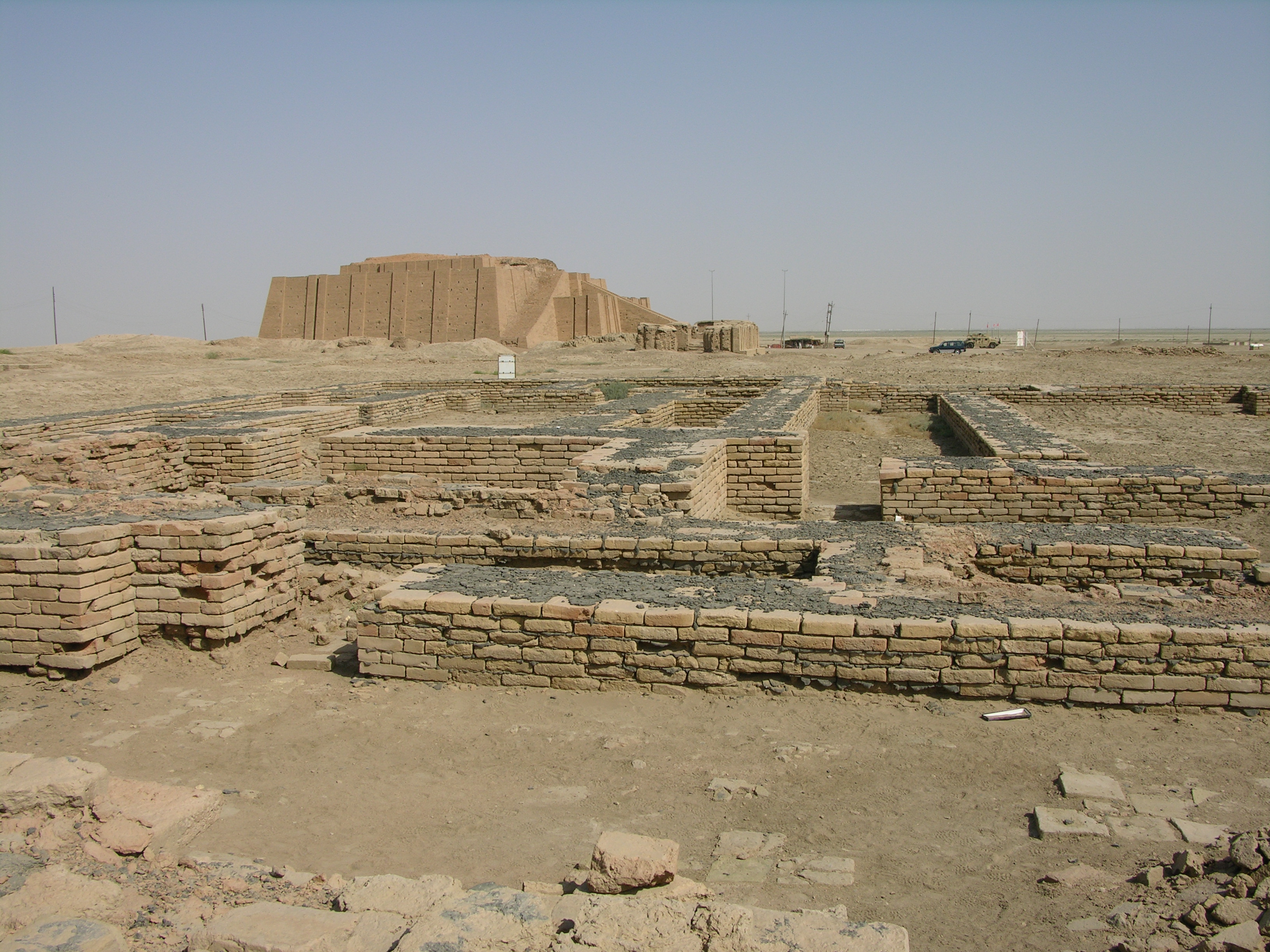.jpg)
Planting and harvesting grain; ancient Egyptian hieroglyphs (credit: Wikipedia)
Agricultural societies succeeded hunter-gatherer
ones, and values such as patience, foresight, diligence, and perseverance
quadrupled in importance. These values, which farming requires, would not
replace the hunter-gatherers’ values totally and immediately, but the farmers’
values and their way of life grew until they, in their multiplying societies,
had largely made the old values obsolete. The new agricultural way of life was
just better at making more humans over the generations.

Ruins of Ur,
ancient Mesopotamian city (credit: Wikipedia)
When hard grains that could be stored indefinitely
were domesticated, towns were formed as an efficient way to store the community’s
food wealth in a central, defensible site. Of course, the progress from stage
to stage had many recursions. Nomadic tribes with little food and plenty of
aggression to spare were lurking, and the most aggressive of these tribes might
for a time subjugate and exploit the city dwellers. Two ways of life tested
themselves against each other. But in the end, the city dwellers won.
Inside a city’s defenses, governing bodies with administrative
offices became necessary to ensure fair distribution of the tribe’s food and to
organize the tribe’s members in ways that brought domestic order and protection
from invaders. Following them came craftsmen and merchants who found a
protected, central site with a large population more conducive to the practice
of their arts than a rural setting.

A
potter in action at a potter’s wheel (credit: Wikimedia Commons)
Cities and their ways proved fitter for economic
progress than decentralized farm communities or nomadic tribes. More citizens
working in increasingly specialized skilled tasks meant more and better goods
and services available and thus, over time, helped to increase the population. Values
shifted toward making all citizens comfortable while they functioned in densely
populated neighborhoods, causing the rise of behaviors that encouraged
citizens to respect their neighbors’ property. Don’t bear false witness
against your neighbor and don’t covet the things he has in his yard next door.
The Bible directed believers not to covet their neighbors’ goods because envy leads
to friction and then violence. The commandments may please God; we don't know for sure. But for sure we know that these commandments make it easier for people to live together and get along.
No comments:
Post a Comment
What are your thoughts now? Comment and I will reply. I promise.